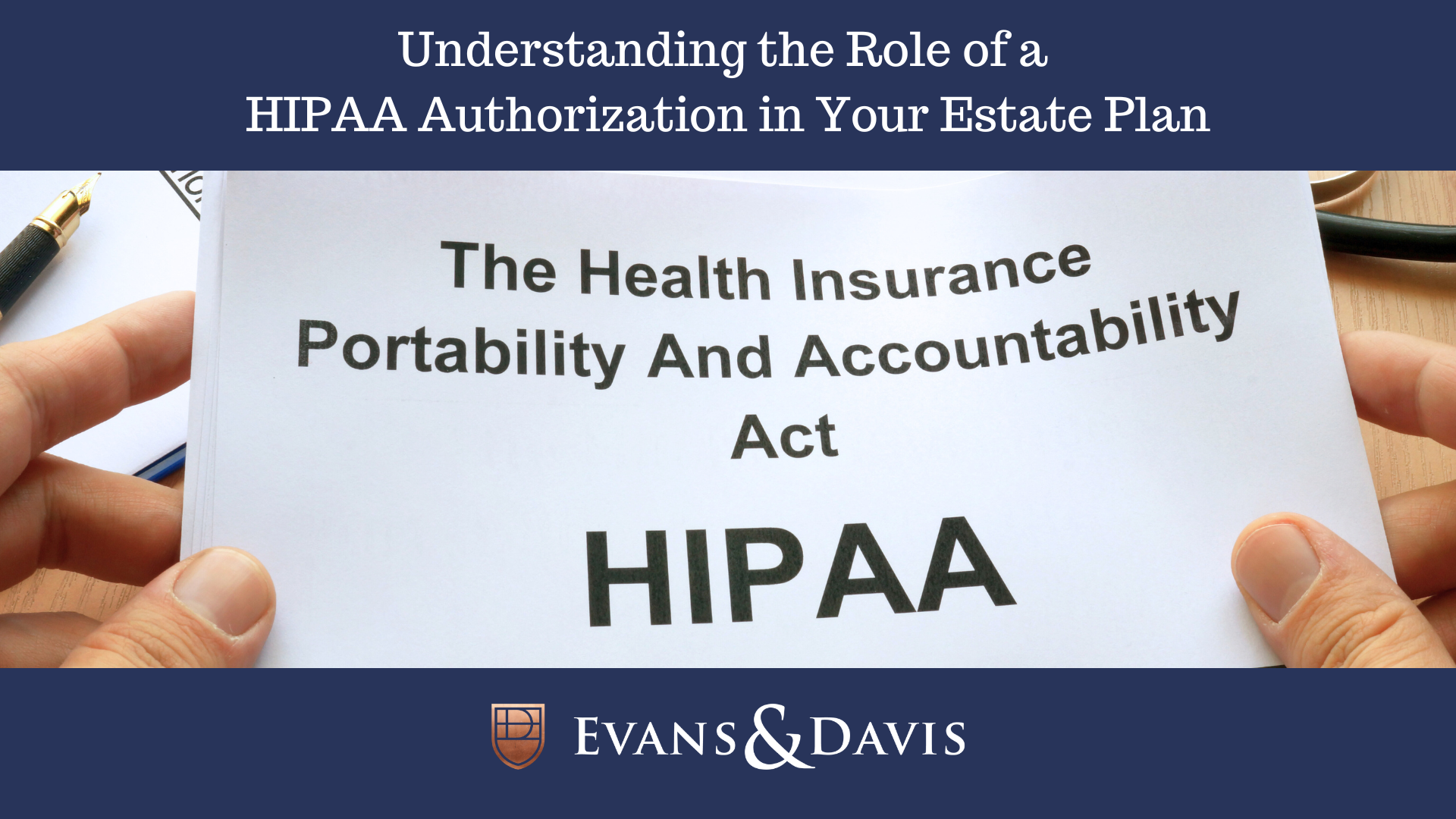
Why a HIPAA Authorization is an Important Piece of Your Estate Planning
In the digital age, where personal information is increasingly vulnerable, safeguarding our health data is vital. The Health Insurance Portability and Accountability Act (HIPAA) of 1996 was enacted to ensure the privacy and security of our medical information. HIPAA regulates how healthcare providers, insurers, and related entities handle sensitive health data to protect patient confidentiality and prevent unauthorized access.
One crucial aspect of HIPAA is the HIPAA Authorization. This document grants healthcare providers permission to use or disclose an individual's protected health information for purposes not covered by other aspects of HIPAA. Here's why understanding and utilizing HIPAA Authorization is essential:
Scope of HIPAA Authorization
Your HIPAA Authorization allows individuals to specify who can access your health information and for what purposes. This document is necessary when health information needs to be shared for reasons including and beyond treatment, payment, or healthcare operations.
By signing a HIPAA Authorization form, you retain control over your health information. You can choose the specific information to be disclosed, the persons or entities authorized to receive it, and the purpose of the disclosure. This ensures that your healthcare information is only shared when and with whom you decide.
Ensuring Privacy
HIPAA Authorization reinforces the privacy protections established by HIPAA. It sets clear boundaries on how your health information can be used and to whom it is disclosed, preventing unauthorized access or disclosure. This is crucial in maintaining trust between patients and healthcare providers and complying with legal requirements.
Healthcare providers and organizations must adhere to HIPAA regulations to avoid legal repercussions. Obtaining HIPAA Authorization ensures they comply with these laws when disclosing health information.
In essence, HIPAA Authorization empowers individuals to maintain control over their health information in an era where data privacy is increasingly threatened. By understanding and utilizing HIPAA Authorization, patients can ensure that their sensitive medical data is shared responsibly and only for authorized purposes.
Making Decisions
Your HIPAA Authorization works within your estate plan, along with a healthcare power of attorney and advance directive, to ensure the people that you've designated can make medical or healthcare decisions for you if you are unable to communicate with your healthcare provider about your condition, treatment, or prognosis, or if you're unable to consent to those individuals receiving this information otherwise.
Conclusion
Signing a HIPAA Authorization form is crucial for ensuring your medical information remains secure and accessible only to those you trust. You empower healthcare providers to share vital information with designated individuals or organizations involved in your care, facilitating quicker and more efficient treatment decisions. This ensures no delays in critical situations, such as emergencies or consultations with specialists, due to a lack of authorized access to your medical history. Take the time to discuss and establish your HIPAA Authorization with an experienced estate planning attorney — it's an act of foresight and care for yourself and your loved ones.


